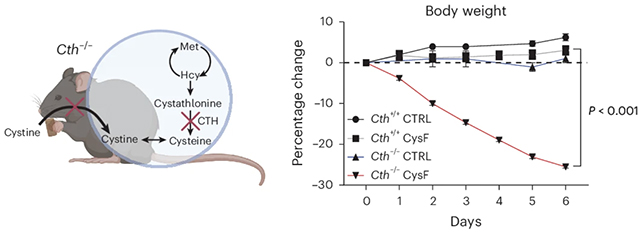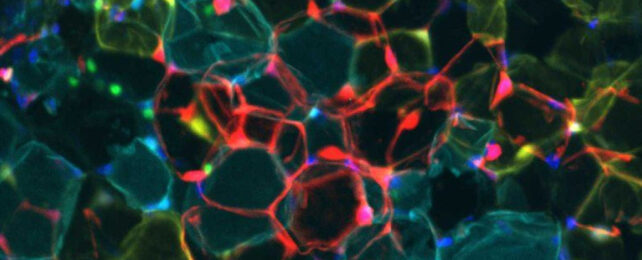Keeping a single amino acid in check could be critical in promoting weight loss as part of the body's typical metabolic processes, according to a new study.
Led by researchers from multiple institutions in the US, the investigation aimed to explain why cutting calories generally leads to shedding pounds. Previous research has hinted that the amino acid cysteine might be a factor, but until now its role hasn't been clear.
What we now know is that cysteine depletion is influential in turning white fat (deposits stored on the body) into brown fat (used to burn energy and produce heat), essentially acting as a biological weight-loss engine.
Related: Scientists Discover a Concerning Link Between Semen Quality And Obesity
"These results suggest future weight management strategies that might not rely exclusively on reducing caloric intake," says Krisztian Stadler, a biomedical engineer from the Pennington Biomedical Research Center in the US.
To put it another way, it seems a controlled diet may be an effective weight loss strategy primarily because it reduces cysteine – found in many protein-rich foods – and that counting calories alone may not be an optimal strategy.

To test this idea, the researchers developed an experiment involving mice that had been prevented from producing their own cysteine. Compared to mice capable of making the amino acid, the animals saw a dramatic 25-30 percent drop in body weight in a single week when cysteine wasn't supplemented via their diet.
While the study didn't involve human test subjects, the researchers did look at data from 238 individuals who had previously enrolled in a calorie-reduction diet experiment. These people had less cysteine in their fat tissue, the data showed, suggesting a link between calories and cysteine in people too.
There's a possibility that cysteine could be a target for some careful hacking of the body's metabolism, though it's an approach that warrants caution: blocking cysteine caused a life-threatening drop in weight in the mice (even though the weight was restored when cysteine levels were replenished), and it's known that the body needs the amino acid for other metabolic functions to run smoothly.
"In addition to the dramatic weight loss and increase in fat burning resulting from the removal of cysteine, the amino acid is also central to redox balance and redox pathways in biology," says Stadler.
What makes this challenging is that our bodies are finely tuned machines: a whole host of factors go into weight gain and weight loss, and when one particular process is disrupted, many others can be affected as well. It's a complex picture, but one that we now understand a lot better than before.
"Reverse translation of a human caloric restriction trial identified a new player in energy metabolism," says Eric Ravussin, a physiologist at the Pennington Biomedical Research Center.
The research has been published in Nature Metabolism.
